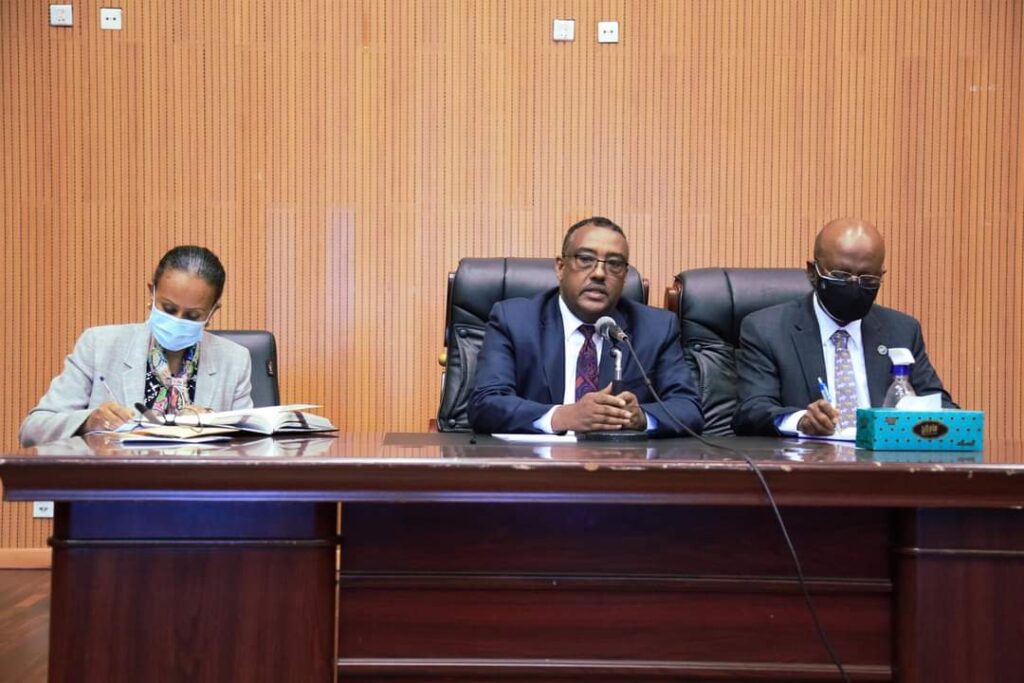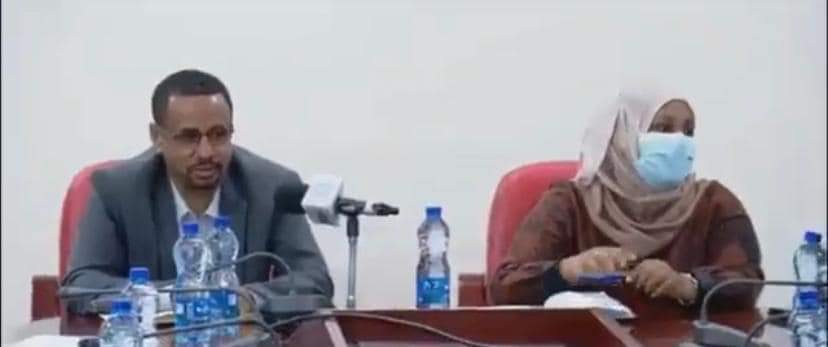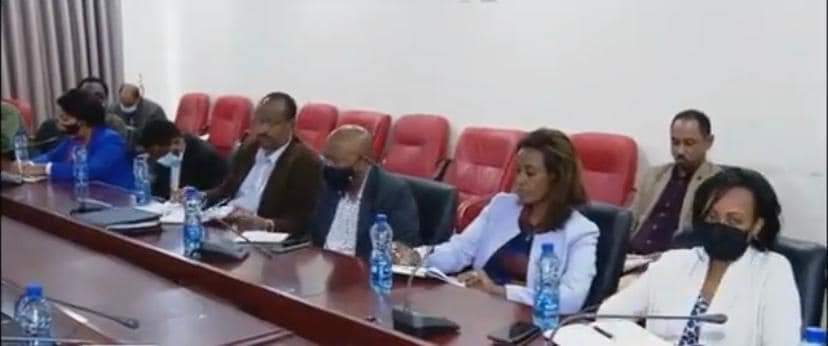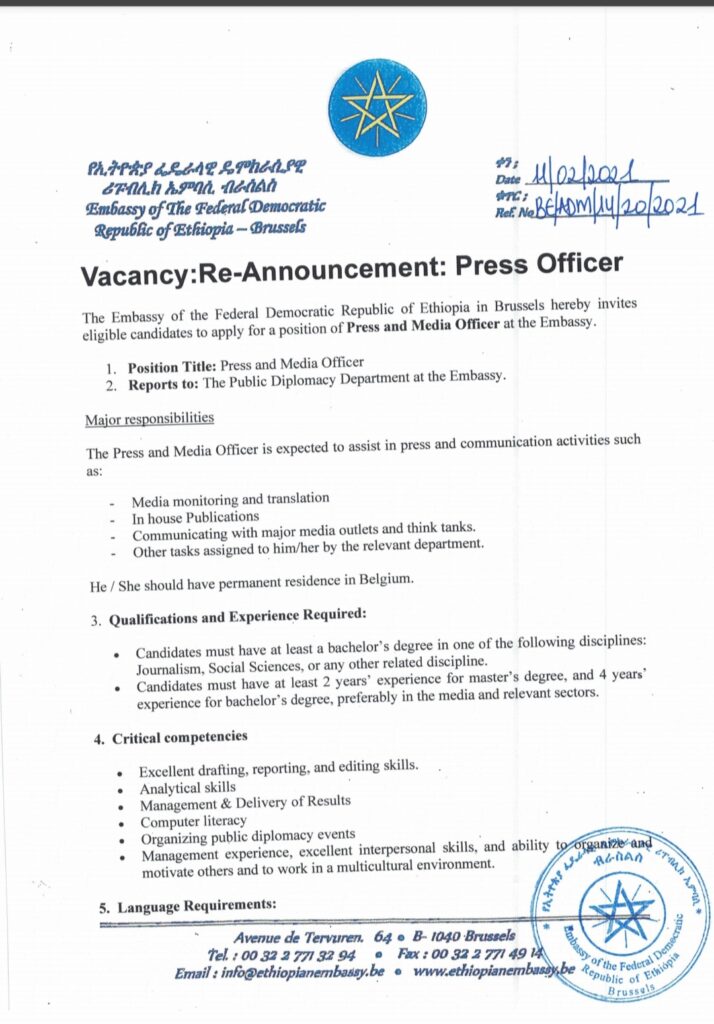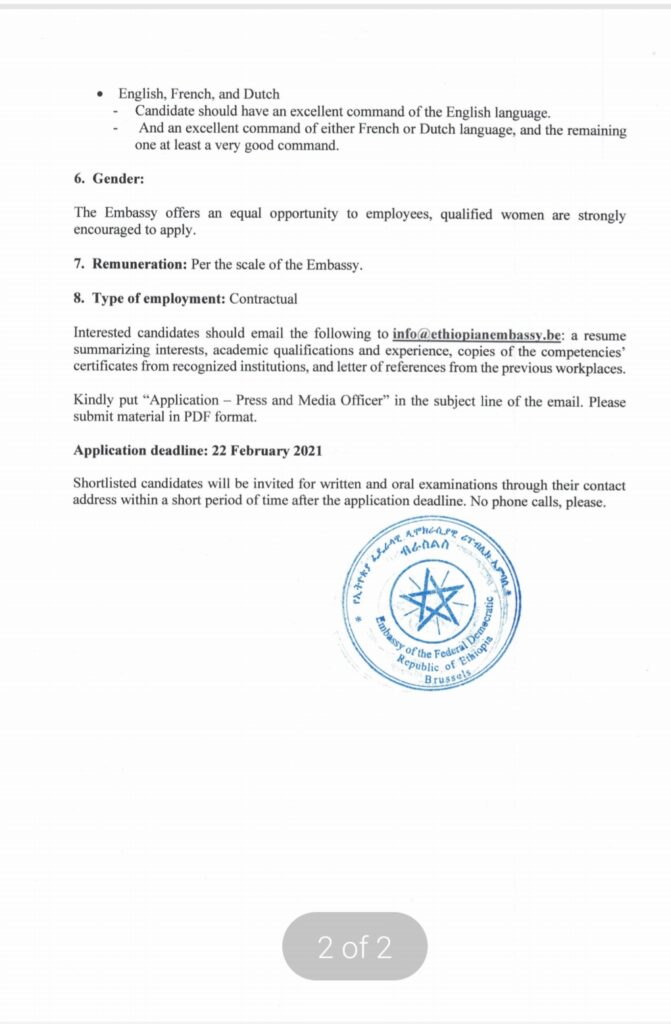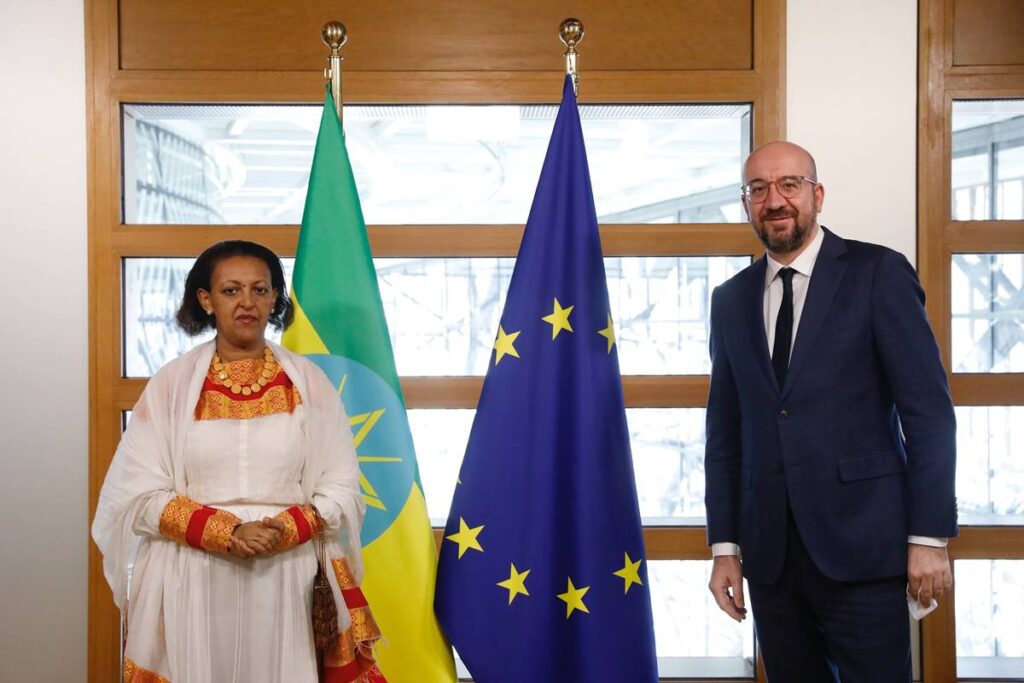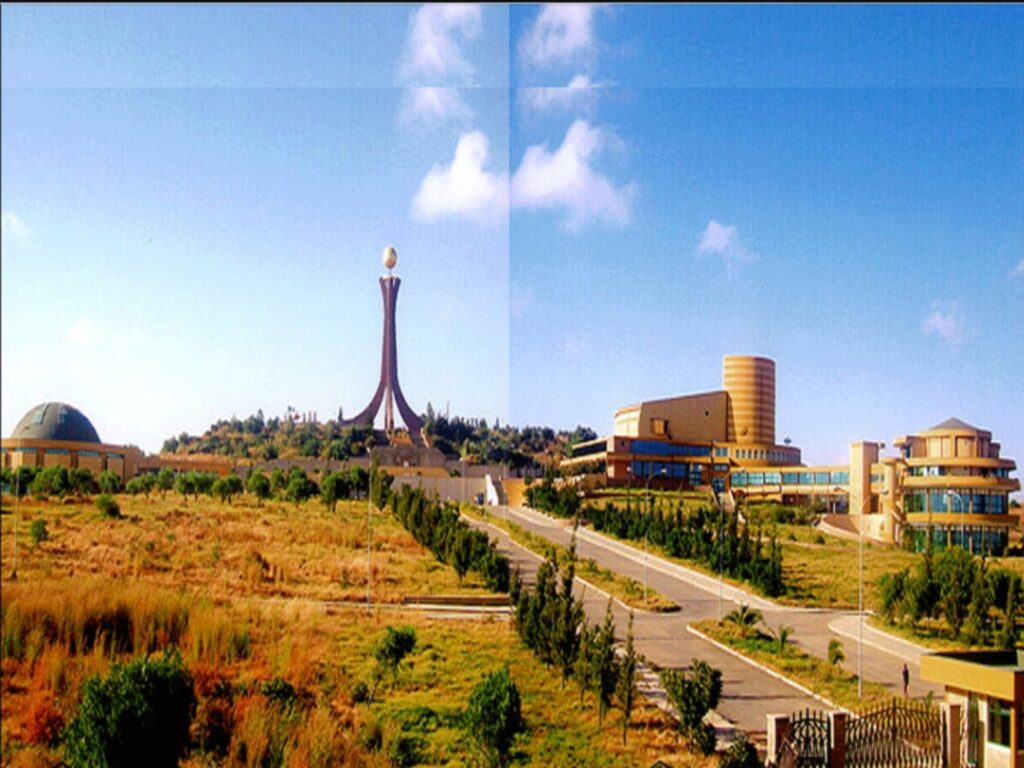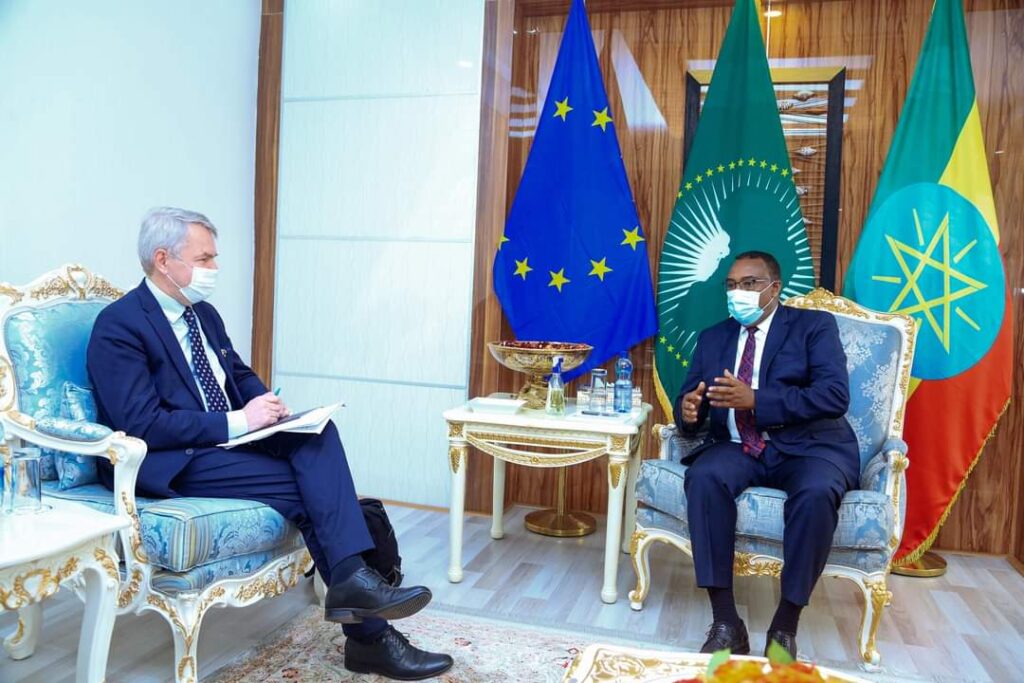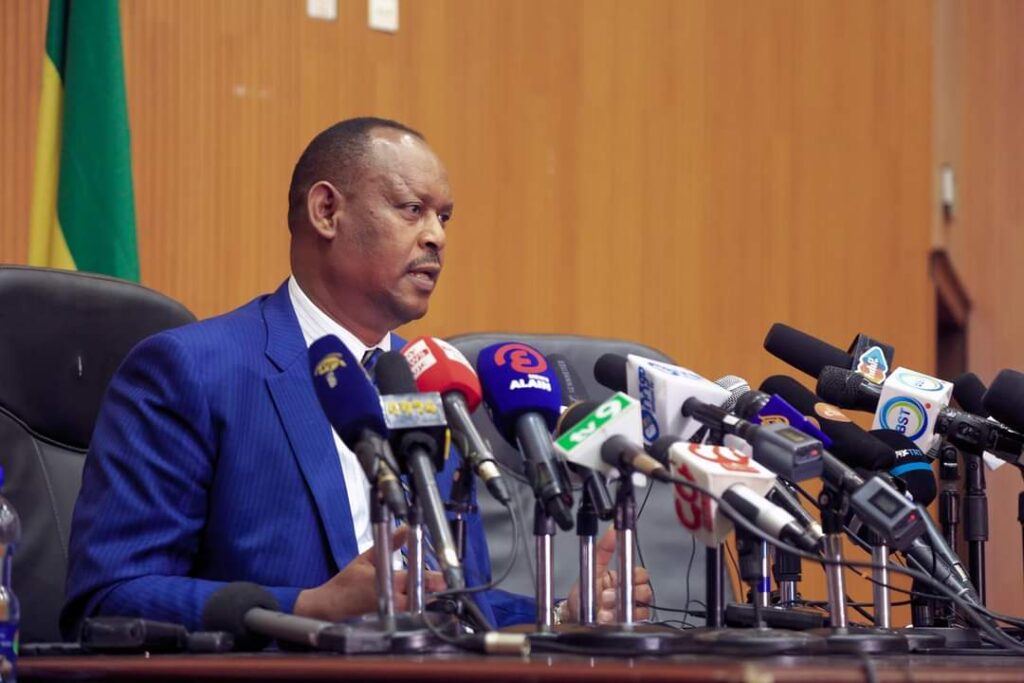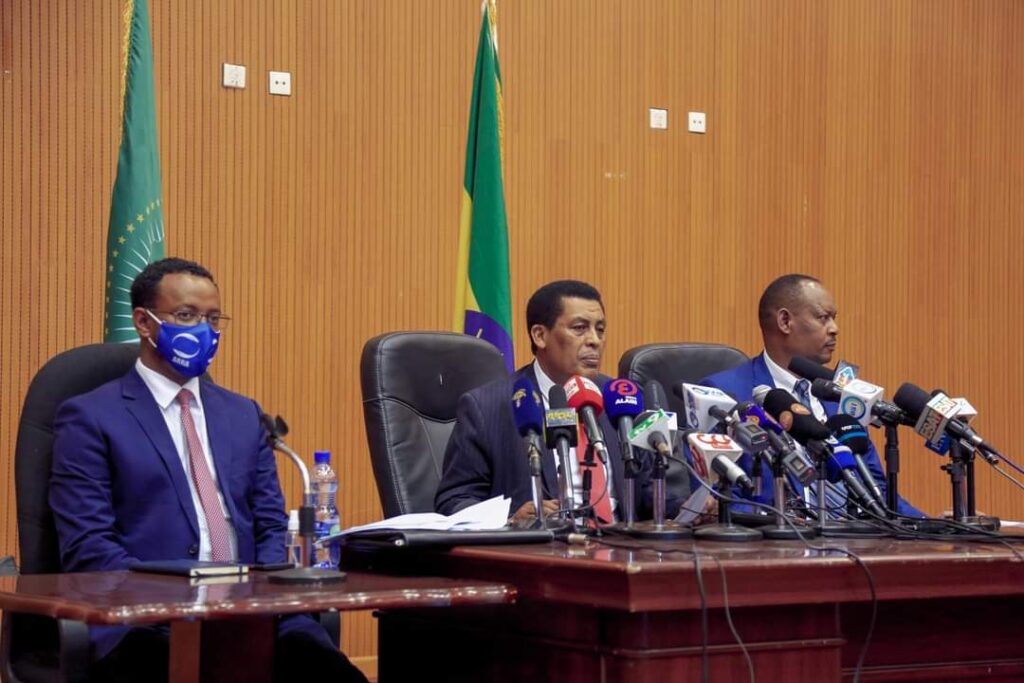Deputy Prime Minister and Foreign Minister of the Democratic Republic of Ethiopia, H.E. Demeke Mekonnen gave a briefing today (February 10) to Resident Ambassadors and Diplomats of African countries in Ethiopia regarding the current status of the humanitarian assistance process in the Tigray region and the preparations for the upcoming general elections in Ethiopia.
Along with Mr. Demeke, Minister of Water, Irrigation and Energy of Ethiopia, H.E. Dr. Eng. Seleshi Bekele and Permanent Secretary of the Ministry of Foreign Affairs of Ethiopia, H.E. Ambassador Woineshet Taddesse, have also delivered briefings on the current status of the GERD negotiations and the Ethiopia-Sudan Border dispute respectively.
According to the Deputy Prime Minister, about 26 International humanitarian organizations are working on the ground in Tigray by getting all the necessary access that they need to properly function, while the government has not been willing to accept questions to access the region without proper notifications, documents, and contrary to the agreement that the Ethiopian government has already consented to.
He said salary has started to be properly being paid to civil servants, financial access through banks is improving and markets in the region are gradually opening up making life in the region go back to normalcy.
Reconstruction, rehabilitation works coupled with the government plan to smooth up the post-conflict normalization process with continuous dialogues with elders, the Interim government, and political parties are going well too, he said.
Regarding the Eritrean refugees in Tigray, Mr. Demeke said, the government is trying to gather scattered refugees from the already plundered and destroyed Hitsats and Shimelba camps and relocate them to safer camps.
In his briefing about the upcoming election, the Minister recalled the resilience and shock-absorbing capacity of the Ethiopian government and its preparations to have fair, free, and democratic elections withstanding all the critical issues that it is facing today.
Explaining pivotal issues regarding GERD, Dr. Eng. Sileshi said the construction of the dam is going on as planned and there is no way that the filling of the dam’s reservoir in the coming July could be escaped.
He appreciated the government of South Africa and its leaders for tirelessly trying to bridge the gaps between the negotiating parties and reiterated the Ethiopian government’s unparalleled political will and commitment to give the issue a viable solution by sticking to the principles of equitable and reasonable utilization of the river basin without causing significant harm to downstream countries.
Ambassador Woinshet Tadesse, on her part, stated how the Sudanese army encroached into the Ethiopian borders while Ethiopia was deploying its military force in Tigray for the law and enforcement operation and she reiterated the Ethiopian government position to solve the Ethiopia-Sudan border dispute amicably through applying existing mechanisms between the two countries.
She specifically raised the 1972 Exchange of Notes between the two countries that clearly stated the agreement between the two to keep the status quo until an amicable solution is reached to solve the dispute and she called on the Sudanese government to respect the agreement and leave the area that it has forcefully occupied by displacing Ethiopian farmers.
The ambassadors appreciated the Ethiopian government’s initiative to brief them on crucial issues of the country which will enable them to understand the matters clearly and better communicate with the leaders of their respective countries.
MoFA
